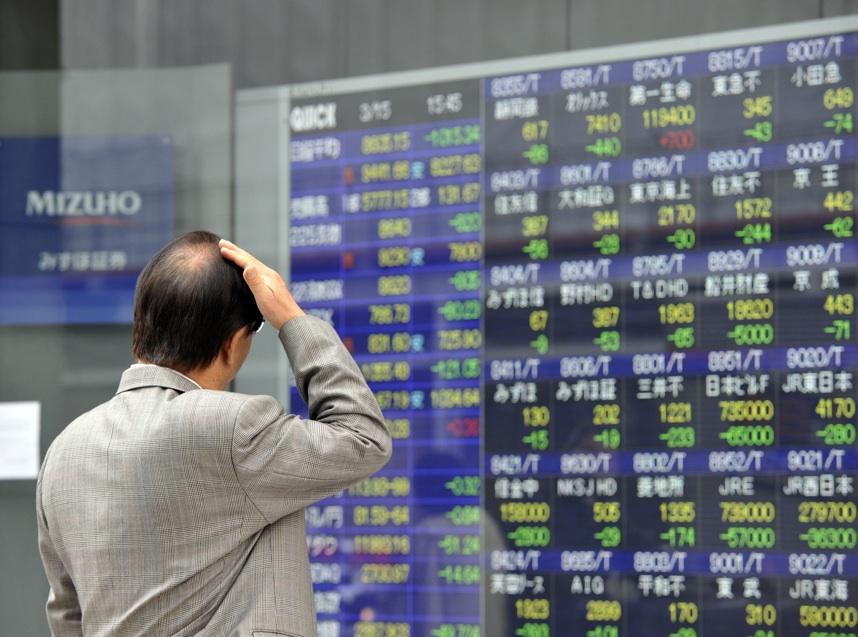Japanese stocks plunge 11 percent
A pedestrian gazes at a share prices board in Tokyo on March 15, 2011.
As Japanense officials strive to avert a nuclear catastrophe in northern Japan, panic selling hit Asia's largest stock market.
Japan's Nikkei Index plunged about 11 percent. The market was down more than 14 percent at one point.
Here's how MarketWatch put it:
Investor wealth of $364 billion — 9.4 percent of the Tokyo stock exchange’s market capitalization — was wiped out during the session after Japanese Prime Minister Naoto Kan said there’s a high risk of elevated levels of radiation from the nuclear reactors and urged people within 30 kilometers of the plant to stay indoors. Also, the Tokyo metropolitan government said radiation levels in the Japanese capital surged to 23 times the normal level Tuesday.
“What the world is watching right now is whether Tepco’s Fukushima nuclear power plant is going to turn into Chernobyl,” Norihiro Fujito, senior investment strategist at Mitsubishi UFJ Morgan Stanley Securities told MarketWatch.
Tokyo's stock market fell more than 6 percent Monday.
Investors across Asia were rattled by the drama in Japan:
- Hong Kong's market slid almost three percent.
- Syndey's market lost two percent.
- Tapei's market dropped more than three percent.
- Seoul stocks fell more than two percent.
European stock markets are sharply lower in midday trading. Wall Street futures are down sharply at the moment, indicating a very weak start to trading in the U.S.
Japan's disaster is raising new fears about its impact, as well, on the global economy.
Here's what I wrote yesterday on the connection between market performance and broader confidence:
It's been a toxic mix of news for investors in recent days: unrest across the Middle East, a widening war in Libya, ongoing worries about another global oil shock, economic growth concerns in both the United States and Europe.
Toss in Japan's Armageddon-like earthquake and tsunami, and now the uncertainty over nuclear meltdown, and it could get very ugly, very fast on global markets in coming days and weeks. And that matters because people tend to spend less when they feel poorer. Tumbling markets are, therefore, not good for consumer confidence. And when it comes to economics, confidence is everything.
Right now, that key ingredient is in very short supply.
Every day, reporters and producers at The World are hard at work bringing you human-centered news from across the globe. But we can’t do it without you. We need your support to ensure we can continue this work for another year.
Make a gift today, and you’ll help us unlock a matching gift of $67,000!
